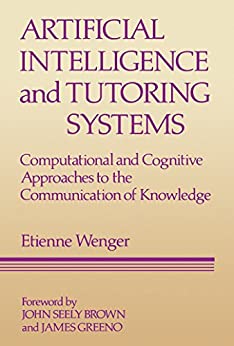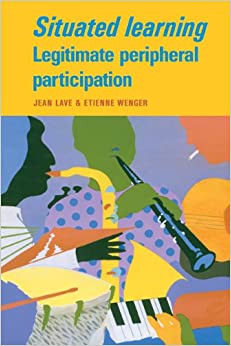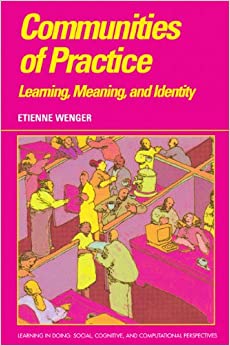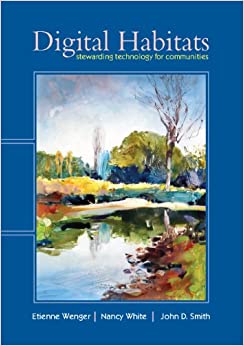Background
Wenger was born on July 1, 1952, in Neuchâtel, Switzerland. He grew up in the French-speaking parts of Switzerland.

1205 Geneva, Switzerland
Wenger received a Bachelor of Science degree in Computer Science from the University of Geneva, Switzerland, in 1982.
Irvine, CA 92697, United States
Wenger later studied at the University of California, receiving a Master of Science degree in Information and Computer Science in 1984 and a Ph.D. in 1990.





(Artificial Intelligence and Tutoring Systems: Computation...)
Artificial Intelligence and Tutoring Systems: Computational and Cognitive Approaches to the Communication of Knowledge focuses on the cognitive approaches, methodologies, principles, and concepts involved in the communication of knowledge. The publication first elaborates on knowledge communication systems, basic issues, and tutorial dialogues. Concerns cover natural reasoning and tutorial dialogues, shift from local strategies to multiple mental models, domain knowledge, pedagogical knowledge, implicit versus explicit encoding of knowledge, knowledge communication, and practical and theoretical implications. The text then examines interactive simulations, existing CAI traditions, and learning environments. The manuscript elaborates on knowledge communication, didactics, and diagnosis. Topics include knowledge presentation and communication, pedagogical contexts, target levels of didactic operations, behavioral and epistemic diagnosis, and aspects of diagnostic experience. The publication is a dependable reference for researchers interested in the computational and cognitive approaches to the communication of knowledge.
https://www.amazon.com/Artificial-Intelligence-Tutoring-Systems-Computational-ebook/dp/B01DT293I0/ref=sr_1_1?dchild=1&keywords=Artificial+Intelligence+and+Tutoring+Systems%3A+Computational+and+Cognitive+Approaches+to+the+Communication+of+Knowledge&qid=1600761505&sr=8-1
1987

(In this important theoretical treatise, Jean Lave, anthro...)
In this important theoretical treatise, Jean Lave, anthropologist, and Etienne Wenger, computer scientist, push forward the notion of situated learning - that learning is fundamentally a social process. The authors maintain that learning viewed as situated activity has as its central defining characteristic a process they call legitimate peripheral participation (LPP). Learners participate in communities of practitioners, moving toward full participation in the sociocultural practices of a community. LPP provides a way to speak about crucial relations between newcomers and old-timers and about their activities, identities, artifacts, knowledge, and practice. The communities discussed in the book are midwives, tailors, quartermasters, butchers, and recovering alcoholics, however, the process by which participants in those communities learn can be generalized to other social groups.
https://www.amazon.com/gp/product/B00AKE1UA0/ref=dbs_a_def_rwt_hsch_vapi_tkin_p1_i0
1991

(This book presents a theory of learning that starts with ...)
This book presents a theory of learning that starts with the assumption that engagement in social practice is the fundamental process by which we get to know what we know and by which we become who we are. The primary unit of analysis of this process is neither the individual nor social institutions, but the informal 'communities of practice' that people form as they pursue shared enterprises over time. To give a social account of learning, the theory explores in a systematic way the intersection of issues of community, social practice, meaning, and identity. The result is a broad framework for thinking about learning as a process of social participation. This ambitious but thoroughly accessible framework has relevance for the practitioner as well as the theoretician, presented with all the breadth, depth, and rigor necessary to address such a complex and yet profoundly human topic.
https://www.amazon.com/gp/product/B00D2WQ72I/ref=dbs_a_def_rwt_hsch_vapi_tkin_p1_i2
1998

(Technology has changed what it means for communities to "...)
Technology has changed what it means for communities to "be together." Digital tools are now part of most communities’ habitats. This book develops a new literacy and language to describe the practice of stewarding technology for communities. Whether you want to ground your technology stewardship in theory and deepen your practice, whether you are a community leader or sponsor who wants to understand how communities and technology intersect, or whether you just want practical advice, this is the book for you. Written by Etienne Wenger, Nancy White, and John D. Smith, the book brings together conceptual thinking, case studies and offers a guide for understanding how technology can help a community do what it wants to do. It gives a glimpse into the future as community and technology continue to affect and influence each other.
https://www.amazon.com/gp/product/B007P6I7SO/ref=dbs_a_def_rwt_hsch_vapi_tkin_p1_i3
2009
educational theorist sociologist author
Wenger was born on July 1, 1952, in Neuchâtel, Switzerland. He grew up in the French-speaking parts of Switzerland.
Wenger received a Bachelor of Science degree in Computer Science from the University of Geneva, Switzerland, in 1982. He later studied at the University of California, receiving a Master of Science degree in Information and Computer Science in 1984 and a Ph.D. in 1990.
Wenger was initially interested in the field of artificial intelligence, earning a Ph.D. in the subject and writing a book on its relation to learning, Artificial Intelligence and Tutoring Systems: Computational and Cognitive Approaches to the Communication of Knowledge. Gradually, he moved away from the study of artificial intelligence but maintained a strong interest in the communication of knowledge.
In 1991 he coauthored a study on the social aspects of learning titled Situated Learning: Legitimate Peripheral Participation. Focusing on the apprenticeship aspects of learning, Wenger and coauthor Jean Lave stress the integration between learning and group participation. In developing tins argument, Lave and Wenger highlight a number of important phenomena that are routinely ignored by the ‘learning is something that happens in the head' perspective. For Wenger and Lave, the development from novice to expert is closely bound up with the transition from newcomer to veteran within the community. To demonstrate this, they study not only the apprenticeships of Yucatec midwives and Liberian quartermasters but also the members of Alcoholics Anonymous.
In Wenger’s next book, he focuses on communities of practice. Communities of Practice: Learning. Meaning. and Identity identifies ways in which corporations can go beyond teams to develop real communities of practitioners who will nourish each other’s creativity. For Wenger, the key ingredients are a shared area of expertise, periodic face-to-face interactions, and shared development of practices over time.
While teams are very task-oriented and tend to dissolve when the task is completed, communities of practice are ongoing, long-term groups built around a shared interest. "You can see why the concept of community of practice is very powerful because, at its core, it is a group of practitioners who have taken on the responsibility of managing knowledge in their domain," Wenger told de Cagna. In 2002 Wenger coauthored Cultivating Communities of Practice: A Guide to Managing Knowledge, in which he "moves from theory to practice, and argues that communities of practice - when managed correctly - can be the key driver of organizational success," in the words of a Research-Technology Management contributor. The book introduces a number of real-world examples drawn from Wenger’s work with the World Bank, Daimler Chrysler, Royal Dutch/Shell Group, and other large organizations.
Currently, Wenger is working on "Learning for a Small Planet." This research is focused on how students learn in the 21st century, and how the integration of technology is affecting education. It is also emphasizing the various domains of learning: "education, business, and civic" and how it is not each one separately, but rather the synthesis of them that enables effective learning. It also goes on to discuss the identity of a learner, and is studying how one must be a participant in multiple groups to be able to form a full identity and learn successfully.
(Artificial Intelligence and Tutoring Systems: Computation...)
1987(This book presents a theory of learning that starts with ...)
1998(In this important theoretical treatise, Jean Lave, anthro...)
1991(Technology has changed what it means for communities to "...)
2009
